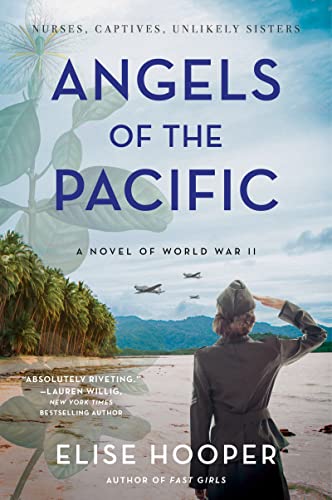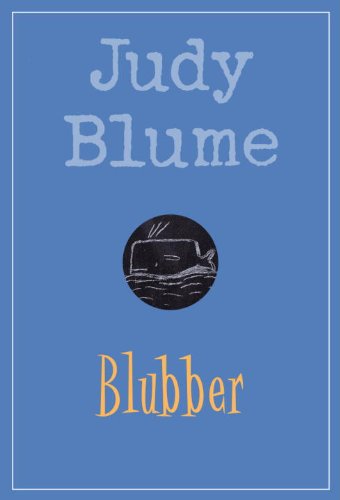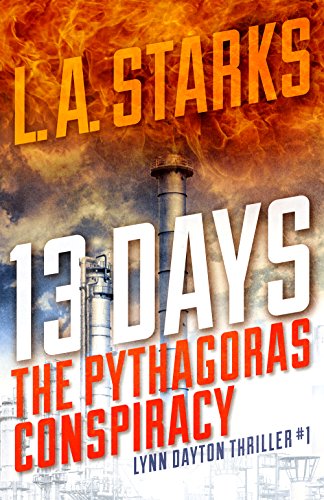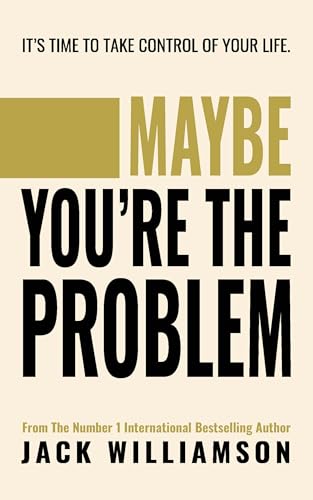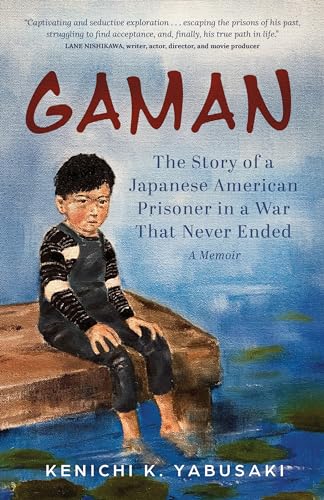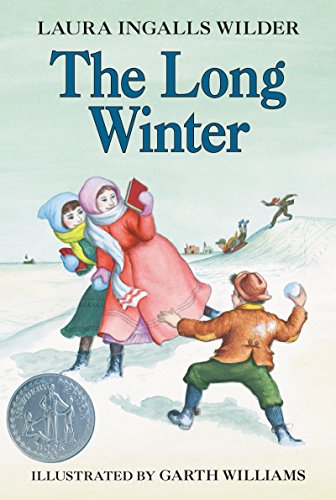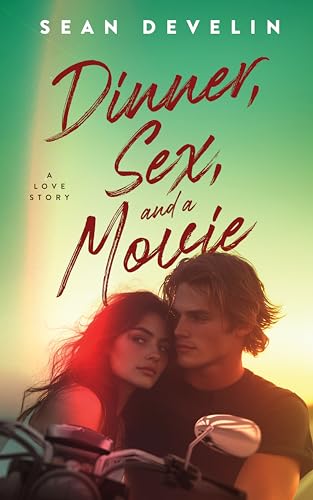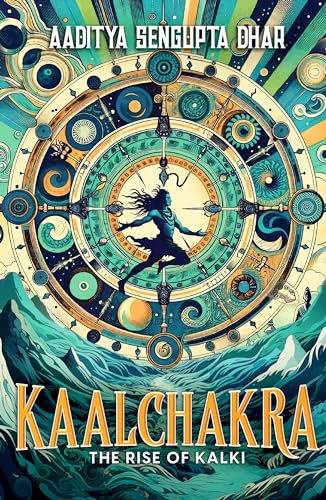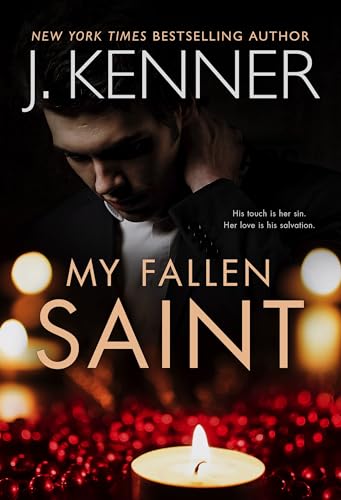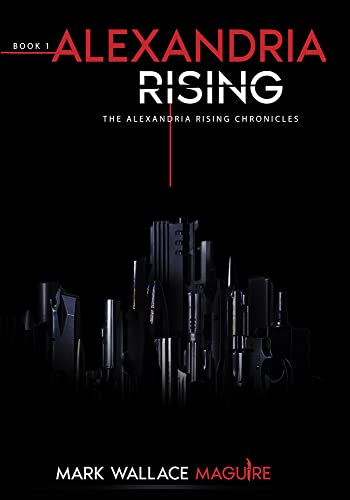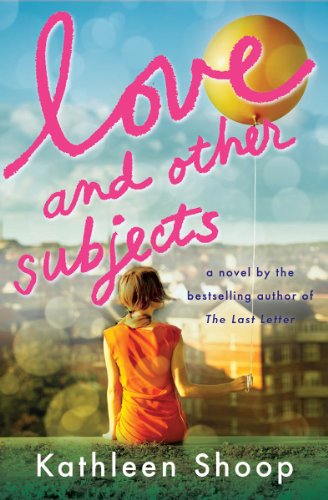A heartwarming story…of loss and change…”
When everything around them comes to an eerie standstill, a family in Texas faces a world turned upside down. Can they survive an uncertain dystopian future?
Get the first book of this four-part series
for just 99 cents!
The normal bustle and rush, the everyday routine came to an abrupt end on one early Spring day in America. Beth and her husband, Jack, were miles apart, yet they both immediately knew that something extremely disastrous had occurred. This was not merely a lights out event, this was the loss of the entire power grid, nearly all transportation stopped dead, planes fell from the sky.
Their grown daughters and their families, stranded in widespread Texas locations awoke to the world turned upside down. With communications non existent, no one knew exactly what had occurred. Each sister had no idea if the other or if their parents were safe. One thing they all were sure of, they must find a way to come together across the miles. Their best chance for survival would be their unity.
The family would be tossed into a dangerous and challenging new reality. Was there hope for Jack and Beth and their children to stay alive in this new and hostile world? The consequences of the event, the confusion and frustration of the population would quickly turn to desperation. Only courage and ingenuity would keep this family alive in a dystopian future.
5-star praise for No Normal Day:
Great book
“A fantastic realistic read on what could take place should American encounter significant problems given threat of wars and financial melt down.”
Great series for EOW readers
“…I just want to read on and on about their lives.”
an excerpt from
No Normal Day
by J. Richardson
CHAPTER ONE
Day One
BETH
A smallish hand somewhat lined with age, lifted the slat of the blinds. Beth scanned as far as her eyes could reach for the hundredth time in the last few hours, hoped to see the familiar stocky form of her husband Jack as he made his way home. Her heart sank, she saw the same empty scene that had existed for hours. At each of the only other two windows with a view of the neighborhood, she repeated her search and nervously made sure the windows were latched and the blinds closed. If she just glanced at the comfortable brick homes it appeared to be another bright Spring day. Beth’s stomach felt tight and queasy, she fought back the tears that threatened to fall…this was no normal day.
The sub-division was built about 30 years earlier. When it was all new it was a good five miles out from the businesses and homes of town, the suburbs. The last twenty five plus years the average size town that Beth and Jack grew up in sprawled in all directions and became a large modern city. Not being dependent on any single big industry, the city prospered through good and bad times. A clean and pretty oasis in the Northeastern part of the huge state of Texas, surrounded by lakes and woods with mild winters and blazing hot summers, it was a popular retirement area. The medical facilities, some of the biggest in the state, were highly ranked. A Junior College and a State University branch based here. A multitude of twentieth-century chain retail stores and restaurants filled the miles of street, churches and banks were prolific. 100,000 residents, thousands more commuted in daily, the well kept city over flowed with housing, hundreds of apartment complexes, rentals and duplexes, thousands of private homes that ranged from modest to multimillion dollar. The oozing expansion surrounded Beth and Jack’s approximate two hundred home neighborhood, once a bit rural.
Only two streets entered the division, numerous streets branched off but no throughway. That made for light traffic, mostly the residents and their visitors. During the day the school bus growled along a couple of times a day. The yard crews, trash men and repairmen serviced the homes; there for a purpose, when their jobs were done, they vanished. It wasn’t very common to hear of trouble or break-ins, in general a safe neighborhood existed with a slow bustle of daily activity. The towering old hardwood trees shaded the green lawns and spring flowers bloomed in beds and hanging baskets. On this day, the sun was bright and the US flag whipped around on the pole mounted on the corner of the house. Most garage doors stayed down. Beth saw one in the next block in the up position, it displayed the normal collection of “things we store in the garage.” As usual, cars and trucks parked in some driveways, a few vehicles lined the side of the narrow paved streets. A slower look revealed the plumber’s van stopped at an angle to the curb and further up a car right in the middle of the street. A couple of houses down, the neighbor’s truck sat silent, halfway in the street and halfway in his paved drive. An unnatural quietness blanketed the neighborhood. The only time in the past that anything even close to this stillness occurred, a rare snow storm hit the area, brought down power lines, stilled the hum of traffic and muted the everyday noise of life.
Earlier, when in an instant everything went silent, Beth stepped outside and joined the neighbors and “day folk” scattered about. Embarrassed to realize that she couldn’t remember the last name of the elderly folks across the street, she nodded to the man and asked him if he was okay? “We are fine. What the heck happened, you think?”
Mike, the neighbor, walked across the street to them, shook his head with disgust, “I was just leaving and suddenly my damned truck went dead,” he grumbled.
“Well, everything is out at my house,” Beth said. They stood for a moment, gazed around and noticed the stalled van and realized they heard no traffic whizzing by on the four lane highway only about three blocks east.
Mike jerked around and grabbed the elderly man’s arm, “Mr. Carpenter, what about your wife, her oxygen?”
Carpenter…Carpenter, Beth tried to make herself remember the name.
Mr. Carpenter’s face showed obvious concern, he replied, “We have a back up generator, so we are fine for now. Thanks for asking.” The plumber waited beside his truck, he punched angrily at his cell phone. One of the yard crews huddled up next to the long trailer filled with mowers and weed eaters and various tools. They looked confused and spoke to each other in Spanish. The mower was stopped at the edge of the yard, one young man walked away towards the highway.
Beth noticed several people milled around in yards and the street, some stopped and talked in small groups. A real knot of fear formed in her stomach, “Think I’ll go home now. Let me know if you need anything, Mr. Carpenter”. If she said a name, sometimes it helped her remember. Mike walked back across the street and leaned on the back of his truck.
When Beth got back inside the house she immediately checked the windows again. The front door dead bolt and lock always stayed secure, she checked them anyway. The back yard had a tall wooden privacy fence, houses on each side, their yards enclosed with similar fences. Across the back barrier the parking lot and several buildings that belonged to the Baptist Church spread. She closed the tall wooden gates that blocked the opening between the house and Jack’s garage/shop, slid the heavy metal latch into place, walked back into the house, secured the back door. Her feet padded down the short hall to the bedroom, she opened the drawer in the bed-side table and carefully picked up the revolver. No longer kids in the house to create worry about the numerous guns, it permitted them to keep them more at hand for their protection. If the grand children or any children visited, the guns were locked away. Jack liked to say, “The good thing about the revolver, you just point and shoot”. The pistol went with her, she laid it on the dining table next to the window where she kept her tense vigil.
The streets and homes were pretty quiet now. Most everyone had given up on trying to determine what happened and drifted away to their homes or out of the neighborhood. She wondered how would all the children get home, with the school buses dead? How would her own grand children, that lived all the way across town, get to their home? Then she remembered, this was Saturday, at least there should be very few children at school. This wasn’t the time to allow herself to panic or think about the worst is happening, the S—hits-the-fan scenario that increasingly nagged at her the last several months, she needed to wash that from her brain. It would all be fine when Jack got home. He had been gone about five hours now, his destination about twenty miles away. Beth tried to stay calm and to distract her mind, began to figure out how fast he could walk, how many hours it would take him to make his way home. Because she and Jack always had a plan, together they could tackle anything.
JACK
Jack raised the garage door, backed his pick-up down the drive and headed out of the pleasant neighborhood. He waved to Mr. Carpenter, the neighbor, as he picked up his newspaper from his yard. He didn’t have to get up and hurry any where these days and that fact pleased him. The exception, of course, something real important like golf or fishing or hunting season. He smiled to himself. Most days he casually sipped a couple of cups of coffee, read the newspaper and fixed himself a little breakfast. Beth didn’t do breakfast, didn’t eat it or cook it. Lunch was also you’re on your own. Luck had permitted him to retire a lot earlier than many of their friends, though most now followed him in that pleasant endeavor. Since his retirement, he and Beth fell into some solid habits and rarely strayed from their routine. Supper, always at 7:00, prefaced by what they laughingly called their “cocktail hour”, which stretched from 5:00 until supper. Beth unfailingly put supper on the table at 7:00. The kids…the three daughters now age 40 to 45 but forever his “girls”…joked to their friends, “If you need something from Momma and Daddy, call between 5:00 and 7:00, the happy hours; never call during the holy dinner hour. Funny.
The steady traffic zoomed by, cars flew North and South. He reached the intersection that exited his neighborhood, intended to pull out and move with the traffic. His destination, the liquor store just over the county line, a booze run, as Beth said. The trip took about twenty minutes, they didn’t sell whiskey before 10:00… no big hurry. Maybe, he’d buy an extra bottle or two and some extra of Beth’s wine. Her paranoia the last few months amused him, she talked a lot about doomsday type events. Nearly daily she washed the empty whiskey or big soda bottles and filled them with water. I bet we’ve got a hundred gallons out in the storage building. Over the years, she never really stored up extra food or supplies but in recent months she filled that closet next to the office flat full. She even asked him to build her a couple of more shelves not long ago.
Jack muttered to himself, something he did quite a lot of lately. Hey, he didn’t doubt the possibility of weird things happening on this earth. The old US of A, not real popular around the world and that nut case in the East always threatened. Definitely, some just crazy enough to nuke us. Things might just fall from the sky. Cheez-us, if a person ever visited Yellowstone National Park, they had a bubbling, seething vista that seemed like it could blow any minute! Stuff sure could happen. He was willing to take a few precautions, make a few preparations for disaster. He just couldn’t spend a lot of time pondering on things that might happen. He laughed as he pulled up to the liquor store, just at that moment the doors were unlocked. Another truck and a couple of cars pulled in and parked. He nodded and said, “Good morning” to a couple that approached and held the door open for them. Inside, the lights flickered on, the clerk welcomed Jack, a familiar face. He knew just where his brand of bourbon lived and went to the shelf at the end of the third row, picked up three bottles, took them to the check-out counter and returned to get 3 bottles of Beth’s favorite wine. By 10:15, with his little haul loaded in the back seat, he headed back over the long bridge that spanned the huge lake flowing around the county line. He barely cleared the bridge when things went way crazy up ahead. “Damn, what the hell is the problem?” he said out loud to no one. Traffic just came to a halt, even in his rear view mirror. One or two vehicles fishtailed a little, one or two stacked up and coasted into the car ahead. By the time he realized that his truck had died, he barely eased it off the road and onto the shoulder.
An instantaneous bee hive of activity erupted as far as Jack could see. Drivers and passengers piled out of vehicles, some cursed, some looked around for an answer. Nearly all poked frantically at cell phones like chickens on a bug. People drifted out of businesses and houses near the highway. Gas pumps at the two or three stations stood dead, no signs blinked, no cold drink cabinets brightly lit, no music floated around. Only the clamor and wondering chatter and a couple of dogs barked in someone’s back yard.
Jack didn’t have to think very long. If the lights went off and all digital displays flashed, that could be a dozen causes. If the electric went black and every vehicle on the road stood dead still, something all together different was the cause. He needed to think, needed to take action, this wasn’t going to get fixed in a short while. He dug around in his console and thought about what he could use. He attended classes and got his Concealed Weapon permit about a year before, in spite of the fact that he knew how to use a gun from his teens years. Practically every young man from his generation grew up as a hunter. A Marine vet, he knew about guns. A legal Smith and Wesson .380 Automatic in a small canvas case clipped on his belt, in the truck door pocket was a .45 Automatic. Extra ammo clips for both were stowed away. One problem, he thought, he hadn’t put a back pack or bag in his truck today. That .45 was heavy and what about that booze? He wasn’t going to leave it here on the side of road to be looted. He checked out the highway behind him, spotted the top of his golf bag in the bed of the truck. Of course, that would work, the clubs could be emptied into the back seat. The bag and the wheeled caddy, he’d fill with what he needed and pull it home.
A very few folks moved back into their houses and returned to the convenience stores. Most just loitered and looked around, questioned each other. They waited…waited for help that Jack was pretty certain would not be arriving anytime soon. The truck was a two seat, four door model, he manually reached around and locked the two passenger side doors, locked the driver’s door as he pulled it shut behind him. Lots of assorted characters moved around, time to get my head in this and pay attention. He went to the back, dropped the tail gate and pulled out the golf bag with clubs and the caddy. With the back side door opened, he unloaded the clubs into the back floor board. “Aay mister, ya got a cell phone that’s working?” The voice right behind him nearly made him piss his pants. Before he turned and snapped some fool’s head off, he told himself, just take it easy, these people don’t have a clue what’s going on and you don’t want any problems with anyone. He turned to see a slim young man that pushed his longish curly hair behind his ear and stood with his hands stuffed down in his jean’s pockets. The kid wore a tight T-shirt, the logo on it was way beyond Jack’s savvy of current trends and his scruffy tennis shoes kicked at the gravel.
Jack let his breath out slow, “No son, I don’t think anybody’s cells are working”.
“Well, that sucks!” the young man just stood there, kind of lost. “You gonna walk to the golf course, mister?” He looked at Jacks clubs and bag.
“No, I am going to load this bag up, put it on that caddy and head out. I have to get into town and I am pretty busy right now,” Jack said impatiently.
“Uh-huh,” and he still just stood there.
Jack rubbed his hand across his stubbled jaw, looked out at the milling crowd, “Kid, who are you with?”
“Names’ Cody and I’m not with anybody. See that piece of crap little car over there?” he pointed at a faded green compact, “I was just going to get a six pack of beer and….”
“Beer!” said Jack.
Cody stood up straighter, “Yeah, I’m twenty one”.
“Uh-huh”, said Jack. He looked the boy up and down and saw that uncertainty that youth often adorns all of us with. The older man just didn’t have any patience for pinheads but something about Cody softened him a bit. Maybe, he reminded him a bit of his oldest grand son. “Tell you what, kid. You go on over to that convenience store and when I get packed up, I’ll come over and buy you a cola or water.”
The whiskey bottles came out of the sacks and he put them in the bottom of bag, also Beth’s wine. He opened the driver’s door, checked to see that no one was really paying attention. Nope, folks still milled around, held useless phones in the air and waited for the Calvary. He removed the .45 in it’s soft case and the extra ammo clips for the .380 and zipped them up in the side pocket of the bag. In his console he rummaged around and found a small flashlight, some strike on anything matches, his pocket knife, some chap stick and his ever present headache pills. He also grabbed his glasses, the ones he wore when his contacts irritated him beyond his endurance and a pair of sunglasses. As much as he despised those slimey perfumey wipe things that Beth insisted on having in the vehicles, he stuck the package in the bag. The sun was pretty bright and they might come in handy before this adventure was over. He pulled out a bag of tobacco. “I know, I know” he mumbled to himself, should have quit this a long time ago. Years ago, heart problems was an unpleasant surprise, he gave up his cigars but just never succeeded in one hundred percent ditching that nicotine habit. The old compass wedged against the side of the console, that could be useful. He added the “chew” and compass to his pile in the bag. He looked once at the cell phone that usually stayed in the truck, the one he never remembered to charge. No matter, a gut feeling told him they were all just going to be door stops for a long time.
He checked his cash and pulled his cap down, closed and locked the doors. One last look at his truck, if things were going down as he guessed they were, locks weren’t going to make a tinker’s dam bit of difference. He tried to mentally click off, anything else in this vehicle that he did not want to lose forever? He opened the truck back up, pulled up the back seat and removed the rolled up pouch of hand tools. Two of the heaviest golf clubs went down in the bag, he dropped the pouch in, turned and locked all the doors again.
With the loaded bag strapped to the caddy he moved towards the convenience store. Cody sat out front and smiled as he walked up. “Aay, what’s your name, mister?”
“Jack”, he pulled on the glass door of the store.
“Well, Jack, they said nobody comes in because they don’t have any power,” said the young man.
“Oh, Bulls—t!” he pounded on the door and yelled at the guy behind the counter. The man came to the door, did not unlock. “Hey, man, I got cash. Just bring me 3 bottles of water and a Snickers bar and some of those cheese crackers and a jerky stick…wait” he looked at Cody, “What cha’ want kid?”
“Um-m, a Dr Pepper, some chips and a Snicker”.
“You get all that? Make it four bottles of water,” Jack barked at the clerk. The guy frowned but went around and gathered up stuff, asked once or twice, “what did you say?”. The aggravated man unlocked, opened the door a crack and said, “That’ll be fifteen bucks.” Jack slid a twenty in, took the supplies and said thanks.
He put everything but the cheese crackers and a water in his bag, handed Cody his. He looked at his watch, it was after 12:00. “Boy, I’ve got to get on the move. I figure I am at least 12 to 14 miles from home and it will take me till after dark to get there.” Jack reached out to shake the kid’s hand.
Cody sipped the still cool soda and said, “If you don’t mind, I’ll just walk along with you. I stay with my uncle and he lives just a mile or so out of town on this highway.”
Not exactly sold on the company of a stranger, Jack had no time to argue. He grabbed hold of the caddy, thank goodness he had on his tennis shoes. As the Spring day stretched out, it might be a little chilly for his denim shorts. Most likely, if he held up to a twelve mile walk, the least of his complaints would be the temperature. Cody fell in beside him, balanced the soda and ate from the bag of chips. They reached the edge of the highway when a rusty old truck came weaving it’s way between the frozen vehicles on the highway. It rumbled along, to the amazement of all that still lingered around. The bent up bed, stacked with bags of some kind of feed or fertilizer and a dog with startling blue eyes balanced on top of them. The elderly man driver in the well worn cowboy hat, had his windows rolled up and ignored the existence of everyone. A guy ran up behind the truck and attempted to jump up in the back. A snarling, snapping furry mouth put an end to that attempt, the truck weaved it’s way forward. Jack had to smile, he had a notion that this was going to get interesting.
***
Beth dropped the peek hole shut and got up out of the chair. She said out loud to herself, “Okay old girl, this is not helping one bit.” Then thought, Looking out the window for hours is just not going to make Jack get home sooner. Whatever is going on, nobody really has a handle on it yet. Things are not that intense on the streets yet. It is still hours before dark. Jack’s goal will be to get home. Even though they were neither one what you would call “spring chickens” and even though he experienced health problems in the past years, she really trusted in his strength. When they met way back in high school, he was very athletic. His career choice, fire department, had given him emergency and quick response training. Jack kept calm and reacted quickly to crisis situations.
She pondered whether he would go to the home of some long time friends that lived on the lake. They, like many of their friends, were not fanatical doomsday preppers. However, they all came from a time when if not so much your parents but your grand-parents believed in being prepared for hard times. Those lessons seemed to stick. Have some extra food on the shelf, take care of what you have worked hard to earn, keep things in repair and learn to fix them yourself, have some cash hid away. Oh, they all lived neck deep in the prosperous modern world, cell phones, big tv’s, nice cars, comfortable homes, dinners out and vacations. Still, they had lived long enough with the echos of long gone ancestors whispering caution in their ears, to believe that all was fragile. A sharp, tap-tap-tap at the window made Beth jump and she immediately reached for the revolver on the table.
“Jack…Beth, are you there?”
Beth exhaled. It was Joel, a friend that used to work with Jack. He lived about a half mile behind them, if you cut straight through the woods that backed up to the addition. “Go to the front door, Joel”. Beth opened the locks, let Joel in and locked back up behind him. They always laughed and called Joel, old gloom and doom. His attitude a bit on the negative side, he was a good man and extremely intelligent.
He gave her a brief hug, “Well, it’s really hit the fan, hasn’t it girl?” Before she could answer, he said, “Where’s Jack?”.
Beth explained. Joel shrugged, “Jack’ll be fine, he’s on his way home right now, you can bet. What about you, you okay?”.
She sent him a smile, “Yeah, I am holding up, just need to keep busy. I am thinking of dragging out our old propane fish cooker and putting it on the back porch. I am not sure that I remember how to hook up the bottle. Will you help me do that?”
Joel followed her out to the storage building near the back fence. The cooker sat in the corner. Made of steel, it was one big burner standing about three foot tall on three sturdy legs. A greasy old cast iron pot wrapped in a grocery bag sat on top. Beth grabbed the deep pot and Joel toted the cooker to the back porch, placed it next to the Bar-b-que grill. Instead of disconnecting the propane grill, Beth walked into Jack’s large shop and found another propane bottle. Joel hooked up the bottle and she paid attention. He located a click lighter from beside the grill and tried the cooker. The flame sh-wooshed up. “Alright, you’re in business now,” he said.
She followed Joel back through the house to the front door. He reached in his pocket and handed her a small two way radio, “You keep this and try to let me know when Jack is here.”
“That reminds me, Jack has a pair of those somewhere in his hunting gear. I think he keeps some things in a metal clad box. You know, a make-do Faraday cage. I’ll have to try and find them,” she said and looked down at the radio.
“Well, keep this one for now, it’s working and I have a couple of more,” said Joel. She walked out behind him. They stood on the front walk, looked around the neighborhood. “Listen, Beth, things look pretty calm around here right now and that’s probably going to hold for a few days. But, you lock up and stay right near the house. It might take Jack longer than you think to make it home. Use the radio to reach me, if you need me. I am headed back to Sandy and the dogs, for now”.
She watched as Joel moved with a slight jog back towards the distant woods. Back in the house, she secured the house again. All the digital read outs were black. The battery clock in the kitchen tick- tocked away, still not late, nearly three hours before dark. Jack had been gone over 6 hours now.
The pork chops she planned to cook for dinner lay on the cabinet, thawed out now. Out of habit, Beth opened the refrigerator to put them away. No light, of course. Wonder how long the freezer will keep…a day or two? She decided that if she was going to cook she would take out some ground hamburger and cook it up, too. I’ll worry about the rest of the freezer stuff later. She took out a pound of ground meat and then decided on a second pound. Don’t need to stand here with the fridge open, ninny, she scolded herself. The meat was still firm but she could cook it slow on the burner and cook the pork chops on the grill. Maybe put some veggies in and make soup or some chili with beans. Not much matter, the refrigerator would not be cool for long, then all the food would have to be trashed, it was a sickening thought. Somewhere in the back of her troubled mind she seemed to remember reading that if you dig down in the ground deep enough, the temperature stayed a constant cool. There was a notebook in her storage closet; she made notes, printed out tidbits of information, cut out articles, etc. She would locate that later and see if she kept that information. One good thing, the soil in this back yard was very soft and sandy, easy to dig in.
Out in the original garage attached to the house her fairly new SUV crouched, not even that ever present light on the dashboard flashed. A window was on the street side of this garage, flowering hedges grew up about halfway outside, covered most of the window. Shelves with various and assorted junk sat in front of the window. She reached through the shelves and checked to be sure the window was locked. Two oil lanterns and some candles sat on the shelves. She thought better take those in and get ready for the night, the dark was going to be heavier than any she had ever known. Jack forbade the burning of candles in the house, too many bad scenes that he experienced. Candles had to be burned with extreme caution, she knew how to be careful, she needed the light. The folding table from the corner looked handy, she toted it inside the house and returned for the lighting. She glanced around to see if there was anything else useful, took a box and put the lanterns and candles in. Once the box was inside she locked the door to the garage behind her. As an afterthought, she moved a stool in front of the door.
After she found some plates to put the candles on, she placed one lantern in the kitchen and one in bedroom. In the living area and bathroom and the storage closet off of the office, candles with matches or lighters by all of them now sat. In the bathroom she remembered she should bring bottles of water in from the storage building. Since the division was originally rural they had a septic system, as long as they had some water, the toilets would flush. Earlier, she turned on the faucet and barely a trickle ran down. The power did go out on occasion, due to winds or storms or even rarely an ice storm that took down lines. She didn’t remember the water ever being off.
The light in the storage building was already a bit dim as the late afternoon shade closed in. They never bothered to install lights in the building, so it wasn’t unusual to only have the light from the open door and a couple of small side windows. Beth let her eyes focus. Down one side, dozens of cola bottles and bourbon bottles filled with water lined up. She took about ten bottles and placed them in the garden cart. Out of the corner of her eye she saw a movement. She scuttled backwards, tripped over a dropped bottle. The bottle just rolled up her back and away, she landed flat on her behind. She absolutely despised anything in the rodent family and freaked out if she was anywhere near one. A flash of fur dashed over her outstretched hand, she squealed and kicked her feet like a pig under a gate. Quicker than she dreamed her plump body could move, she was up and spotted a cat flying over the fence. “Damn cat!” They loved to camp out under the storage building. She refused to feed them but someone in the neighborhood sure was, probably Jack, behind her back. At least, they did keep the rodents away. Her heart still pounded as she rolled the cart up to the back door. Work was always good to get your mind off your problem, she was certainly distracted.
Another hour passed and she needed to get to the cooking. She toted the bottles of water into the kitchen and bathroom, unfolded the table and started to gather the things to prepare the food. Thank goodness, a soft breeze stirred and the evening would bring coolness. These days were numbered, the blazing heat would soon hang heavy, even the covered concrete patio wouldn’t be immune to it. It had now been nearly 8 hours since Jack left and the dark less than two hours away. She lit the propane cooker, sat the pot with the hamburger on, covered it with a lid and adjusted the flame to low. The grill fired up, she put the pork chops on, sprinkled them with salt and pepper. She recalled how her grandmother always said, “Don’t put all your eggs in one basket, little missy”. That basket, that Jack basket, the one she had always put her hopes and dreams and faith in, she wasn’t near ready to let go of. The pork chops made a sizzling sound and she flipped them over. Jack would be hungry when he got home.
***
It was too soon for Jack to worry about Beth or let any thoughts of “the girls” enter his head. He knew Beth had no plans to go out, so she was home and he would be there before this day was over, they would make plans. He never thought that he’d wish for that infernal cell phone but he sure wished he could give her a call. The cart trailed along behind him and he quickly figured out that there were a few less vehicles over on the shoulder of the road. Cody kept up easily, the not-so-young man with the cart and the skinny young man moved along the side of the highway that looked like a long salvage yard. The haphazard collection of vehicles did not lessen as the two moved along, not that Jack expected it to. He, of course, didn’t know how widespread this “incident” was but it wasn’t isolated or contained. A few people still sat in their cars. Jack said, more to himself than the kid, “What the heck do they think is going to happen, why are they just sitting there expecting some kind of miracle or magic to save them?” Cody kept up a steady stream of conversation, at least it irritated Jack enough to keep him from dwelling on his situation.
“You got kids, Jack?”
“Yeah, three daughters, two son-in-laws, a slew of grand kids and one great grandson,” Jack replied.
“Wow, you don’t look that old,” said the kid.
“Thanks,” Jack frowned and spit some tobacco out to the side.
Cody said, “All those kids live here, close to you?”
“Nah. The youngest, her hubby and two little ones, live about 100 miles north of here. The middle daughter’s husband is in the army and they live about 200 miles south, near the military base. They have 5 kids between them, mostly grown and out of the house. Her daughter has my great grand-son. My oldest daughter is a widow and she has a couple of kids and lives on the other side of town.
“I never really knew my father, took off when I was little,” said Cody, “It was just Mom and I. Last year, my uncle Lee came back here. He got hurt pretty bad in Afghanistan, so he is out of the Marines now. We always got along so he asked me to live with him. He only gets his disability pay and I have been trying to get a job. I applied for a grant, want to go to the Jr. College.” He continued on, telling Jack about what he wanted to do, some computer crap that the older man didn’t quite get. Jack thought that he talked like a pretty smart kid, though.
They had walked for about three hours, Jack figured more than six miles. He was not doing so bad, his hips felt pretty tight and his feet hot but he was making it. There was still a long way to go, Cody traded out with him and pulled the caddy. As the afternoon stretched out he noticed that a lot fewer people just stood around or sat in their cars. He didn’t particularly like the looks of some of the people that were around. One guy pulled on a door handle and cupped his hands around his eyes to see inside. Damn certain that’s not his car, Jack thought, but I just don’t have time to go there. He looked up ahead and two young men walked towards them, one with dark skin, one with light. They looked pretty scraggly, their pants hung a little low and one had a cap turned backwards. Jack never had understood the purpose of falling off britches and a cap that was making shade on the back of your head. An over abundance of tattoos and piercings decorated their bodies.
One of the men smiled, “Well, where are you two headed?”.
Jack didn’t slow down and said, “Just into town”.
The darker of the two turned and fell in beside Jack and the other one dropped a little behind. “What’cha got in the bag, old man?”
“Not your concern,” said Jack. He moved his hand to the case on his belt. Cody pulled the cart, appeared very nervous, Jack turned and gave him a wink. He noticed the guy that checked out the car, leaned on the top and watched. The man that walked beside Jack said, “Damn, must be something good in that bag”. Jack stopped now, these slimes were not just going to walk on.
Cody stood still beside him, his voice not that steady he said, “Dude, why don’t you guys just go on where you were headed, we don’t have anything but some water and a Snicker’s.”
The man nearest the bag, stepped up and pulled out a short bladed knife. Jack smoothly pulled the .380 from the case and looked right at the grubby face, “Sorry, dude, bullet trumps blade” and he raised the automatic. The guy slashed out at Jack’s forearm, he lowered the gun and shot, hit the guy in the foot. The thug fell to the ground, “The crazy ole som-bitch shot me! Ow-w-w”. The partner backed up and Cody backed up, he moved in the direction that he and Jack originally headed. Jack picked up the knife the injured guy dropped and flung it as far as he could, out into the high weeds beside the road. The man by the locked car took off running. Jack, the gun still in hand, walked backwards for a bit. The injured guy howled and held his foot, the other guy tried to calm him down. The caddy bumped into Jack’s heel. He said, “Go Cody, MOVE!” He turned and the two of them, in not quite a run but moving fast, put some distance between themselves and the two muggers.
… Continued…
Download the entire book now to continue reading on Kindle!
50 rave reviews!
Special Kindle Price: 99 cents!
(reduced from $1.99 for
limited time only)


